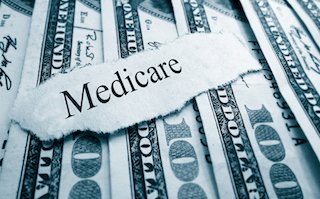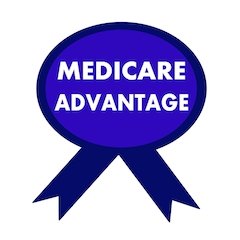Many active members of Insurance Forums are in the Medicare Supplement business. Recently, the House of Representatives held two back-to-back hearings on a repeal of the SGR (Sustainable Growth Rate), the basic payment formula for physicians, which has been in force for 10 years. During that time, there have been 17 of what are known as “doc fixes” or “patches.”
The stated purpose of the hearings, entitled, “A Permanent Solution to the SGR: The Time is Now,”was to develop a plan to either repeal SGR, or replace it with some other physician payment plan.
That, in and of itself, would seem fairly simple, but even though everybody in the hearings agreed that SGR needs to repealed — and the sooner the better in view of a March 31 date, when another patch would be needed — the problem is in what lawmakers refer to as“offsets,” or “pay fors.”The CBO maintains that elimination of SGR would cost about $140 billion over 10 years— and that is where the problem rears its head. How do we pay for this repeal?
Unfortunately, several of the testaments included language to introduce “cost sharing,” which is really “cost shifting” to Medicare beneficiaries through several changes in Medicare itself, and Medicare Supplements in particular. Those proposals would affect 11 million people with Med Supps, and directly affect over6.5 million who have Plans C and F.
Recently, one of the Forum’s more active members, “cadylou,” presented you with a summary of what this means in a thread titled, “Congress looking at limiting Medigap options,” and it received quite a bit of follow-up among members.
Now I invite you to read a more in-depth summary of the hearings and their potential implications, culled from the Jan. 27 NAMSA Newsletter, penned after watching more than 5 hours of hearings and then digging into written testimony.
March 31 deadline looms for patch or repeal
The hearings were held on Jan. 21-22 in front of the Committee on Energy and Commerce, Subcommittee on Health. The presiding officer was Health Subcommittee Chairman Joe Pitts, with Energy and Commerce Committee Chairman Fred Upton offering opening statements.
As they did last summer, the committee chose three liberal-leaning people to provide testimony the first day. Former Senator Joe Lieberman, Alice Rivlin of the Brookings Institution, and Marilyn Moon of the American Institutes for Research.
So, a hearing on repealing SGR legislation is something we have called for, and it should not affect us, right? Wrong. I really didn’t believe that Congress would address SGR this soon, but as Mr. Pitts said, “This was the first Committee Hearing on the issue” only about 14 days into the 114th Congress — so they are on it. The March 31 deadline for a repeal or another patch is on their minds — front and center.
Here’s the scenario. Congress must act on a repeal or a patch within about 60 days, and of course the Senate must go along, and the President must sign the bill. Nobody, and I mean nobody in either of the two sessions argued in favor of letting the issue lie, and all committee members, testifiers and anybody in the room said that SGR must be repealed NOW. Seems pretty simple — just pass legislation to repeal SGR.
But, that’s not quite how it works. One of the testifiers used the old, “The devil’s in the details” quote, and it was meaningful. So, here’s the devil: Most committee members (and Lieberman) feel the SGR repeal can’t be achieved without “offsets” or “pay fors,” which the CBO has calculated to be $140 billion over 10 years.
OK, so what are the offsets? Well, those are suggestions as to how to pass this with a variety of theories regarding how $14 billion can be “saved” by cutting Medicare expenses, and restructuring Medicare payments. (Of course, everyone — committee members and respondents — all made the statement, how can we do this without hurting beneficiaries?)
There were probably a dozen ideas presented as to how to achieve “pay fors,” including quite a bit of comment from committee members on the second day as to whether “pay fors” are really necessary. As in, why can’t we just pass this and let the “pay fors” develop over the next several years? Somehow, I agree with this position, knowing full well, as they do, that it adds to the federal debt. I say that in view of some of the offsets what were presented.
• Care to comment about the implications of Medicare restructuring for agents? Please visit this new thread.
Time for mythbusting
But, here’s we should be concerned. With former Senator Lieberman constantly referring to former Senator Tom Coburn as his “bipartisan colleague,” he referred to the old theory that first-dollar Medigap coverage creates overutilization — he said 25% more utilization. His proposal also called for limitations on Medigap policies that pay first-dollar coverage (Plans C and F). Rivlin concurs, saying that “Medigap’s objective is to make it free for beneficiaries (who choose these policies). And Moon agrees that overutilization is a cause of Medigap first-dollar coverages.
So, the three testifiers all agree that Medicare Supplement reform is necessary. This is not a small issue, and if tied into an SGR bill that everybody says is necessary to pass now, we don’t have a lot of time to notify lawmakers of the myths that they are led to believe.
Only one committee member, Ms. Castor, a Democrat from Florida, referred to the NAIC study of last year which stated that no changes need to be made to Medicare Supplements. Pretty obvious that anything of that sort will not be allowed to permeate the attitudes of the majority.
See, it looks as though the Republican leadership chooses who they wanted to testify, in order to reaffirm their findings of last summer, when they passed repeal of SGR legislation in the 113th Congress, even though the bill went nowhere. This was a pretty clear attempt to pass SGR legislation, with the “offsets” being achieved by the testimony of the three witnesses they chose to testify on the first day. So, while this thing gains steam, we don’t have much of an opportunity to get our voice heard in a short time.
The hospital lobby
The second day required the testimony of six medical-related experts. There were not a lot of new ideas presented during the two-hour session, but two of the six were particularly aggressive in their written testimony, and in answering questions.
The first was Richard Umbdenstock, President of the American Hospital Association. His presentation, and written testimony, pretty much declared that everybody involved in Medicare “reform” should include sacrifices from everybody but hospitals, claiming that hospitals have already paid their share of financial grief. Out of his five recommendations (for offsets), four of them affect beneficiaries or Med Supp producers:
1) Modernize Medicare by combining deductibles
2) Institute “Cost Sharing”
3) Modify Medigap first-dollar coverage
4) Raise premiums
5) Reduce medical liability through tort reform
Well, my, all so neatly tied into a package that would not affect hospitals, at the expense of beneficiaries and Medicare Supplement companies and producers. I still fail to see how combining Part A and Part B deductibles benefits hospitals.
• Care to comment about the implications of Medicare restructuring for agents? Please visit this new thread.
AARP’s position
I felt the most compelling and strongest testimony was made by Eric Schneidewind, President Elect of AARP. He was terrific in presenting the case that SGR repeal was not to be made on the backs of seniors. His most compelling statement was that proponents of “cost sharing” were really promoting “cost shifting,” and that it was bad legislation to lay that on the backs of beneficiaries. He also championed the position of low-income beneficiaries, and stated that the budgeting offsets he proposed would save $70 billion over two years. AARP is against combining deductibles and matters concerning Medicare Supplement changes.
Also, Umbdenstock and others determined that they could live with passage without any offsets. Which brings me to a similar conclusion — why do there have to be “pay fors”? Some legislators are leaning that way.
Discussion skips many major issues
I was surprised that some things evaded the two days of hearings. Only once was any mention made of reforming Part D, or finding savings there. Amazing.
And, NOT ONCE were any of these three factors mentioned:
1) Any discussion of RACS and the role they play in recovery or more so, the role they play in disrupting hospital codings — even by Umbdenstock.
2) NO discussion whatsoever, of the $60 billion of fraud, waste, overpayments and duplicate payments of Medicare. I do not understand how this gigantic issue evaded the entire discussion as a “pay for” solution.
3) No mention was made by those who recommended the combined Part A and Part B deductible as to whether or not Medicare Supplement companies would be allowed to insure against this deductible. As you may remember, the last time around this was a major factor in the “cost shifting” legislation.
One point that did make its way into the discussion was the fact that for the third year in a row, the President’s budget proposal calls for an increase of $25 in the Part B deductible for years 2018, 2020, and 2022 for new entrants into Medicare. Nothing was said about his previous requests for a 15-20% Part B surcharge on holders of Medicare Plans C and F, but I don’t have to work very hard to imagine that the promoters of cost shifting still have that in mind.
In conclusion, I am still amazed that Republicans want to continue to throw rocks at Medicare beneficiaries and Medicare Supplements. And that they use time-worn liberals to achieve their intent. I realize that Medicare Advantage is their baby, but what is the point in developing “pay fors” in SGR repeal that are harmful to 6.5 million Americans with Plans C and F, and Medicare Supplement companies and producers?
• Editor’s note: This article is a condensed version of author Ron Iverson’s NAMSA Newsletter from Jan. 27. For information about joining NAMSA and receiving the newsletters, please visit the NAMSA website.Iverson is actively looking for suggestions for how Medicare advisors can quickly rally to make a case to lawmakers regarding issues related to cost shifting. You may provide feedback via this new thread, or can email Ron directly at [email protected].
Ron Iverson is President and Executive Director of the National Association of Medicare Supplement Advisors, Inc. (NAMSA).













